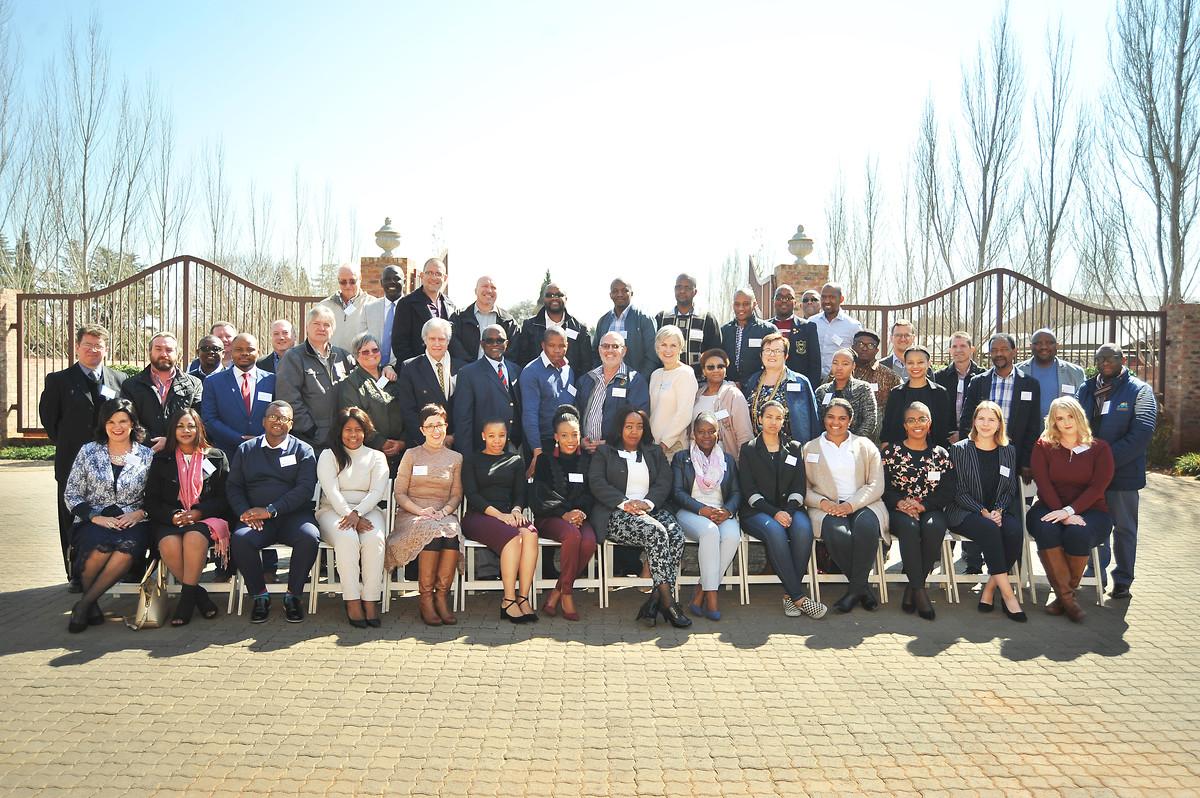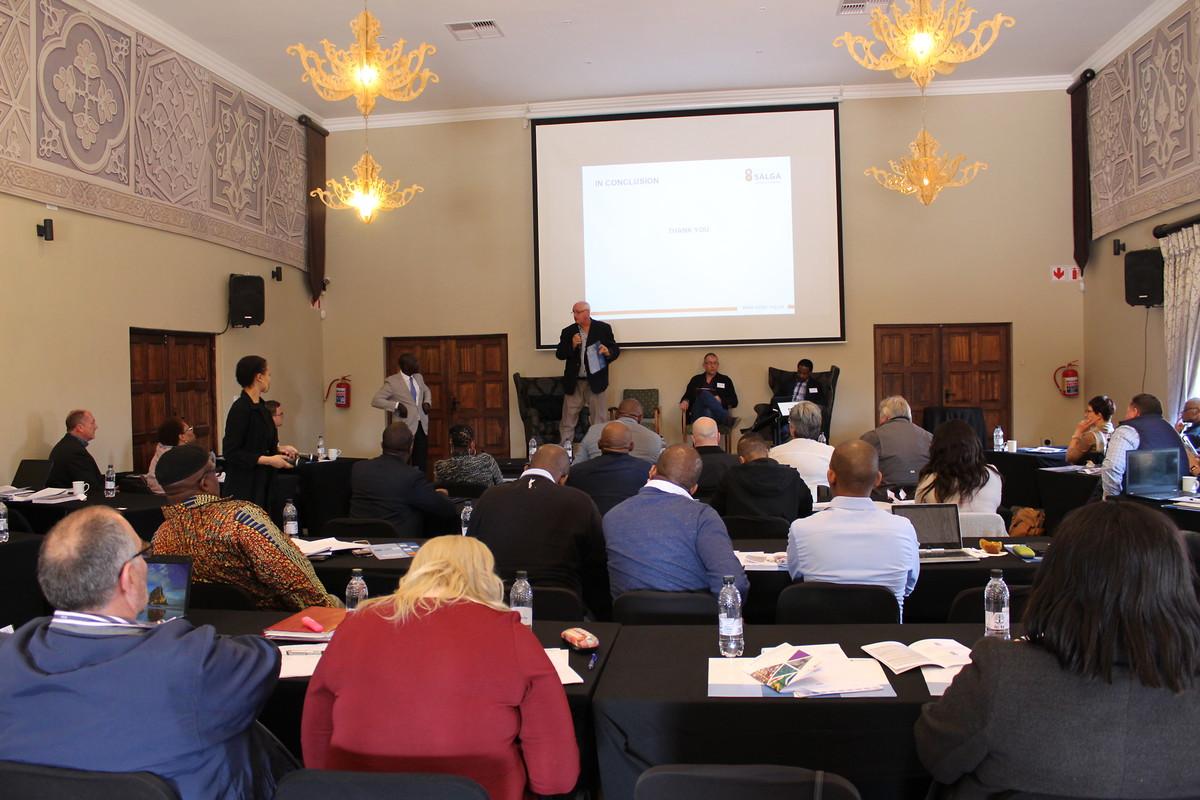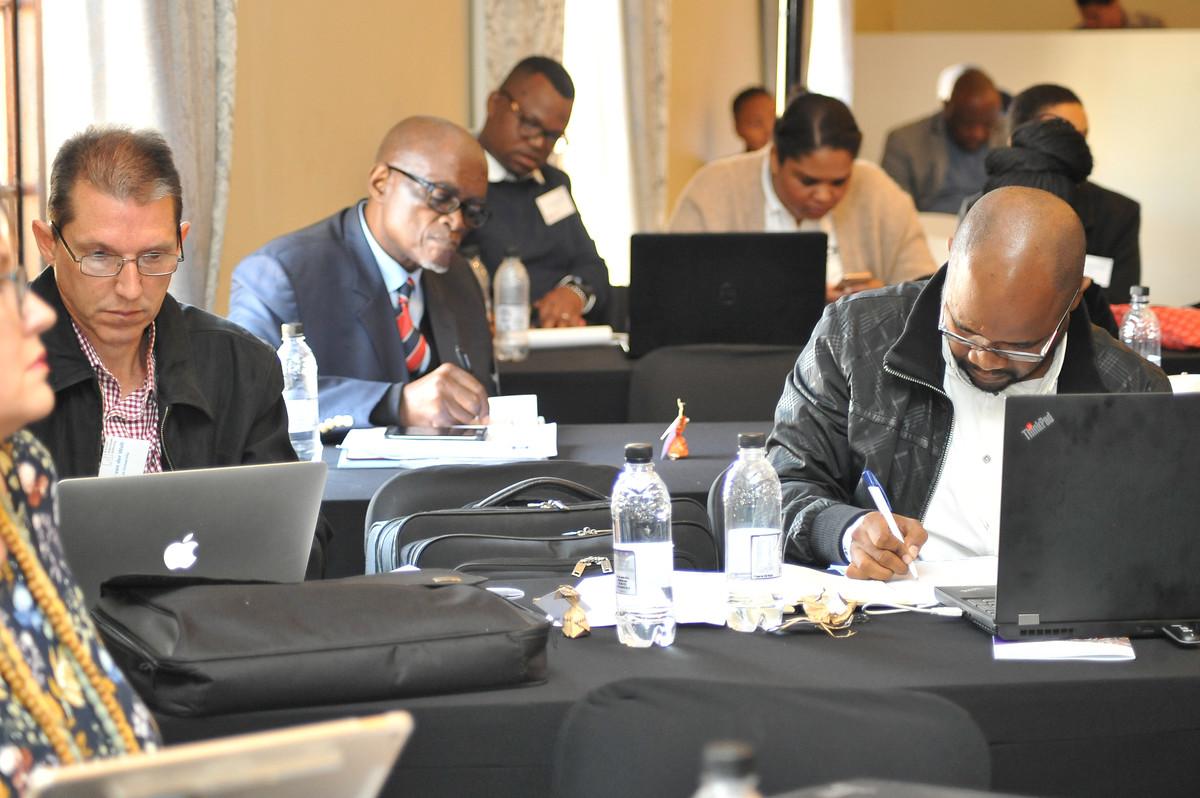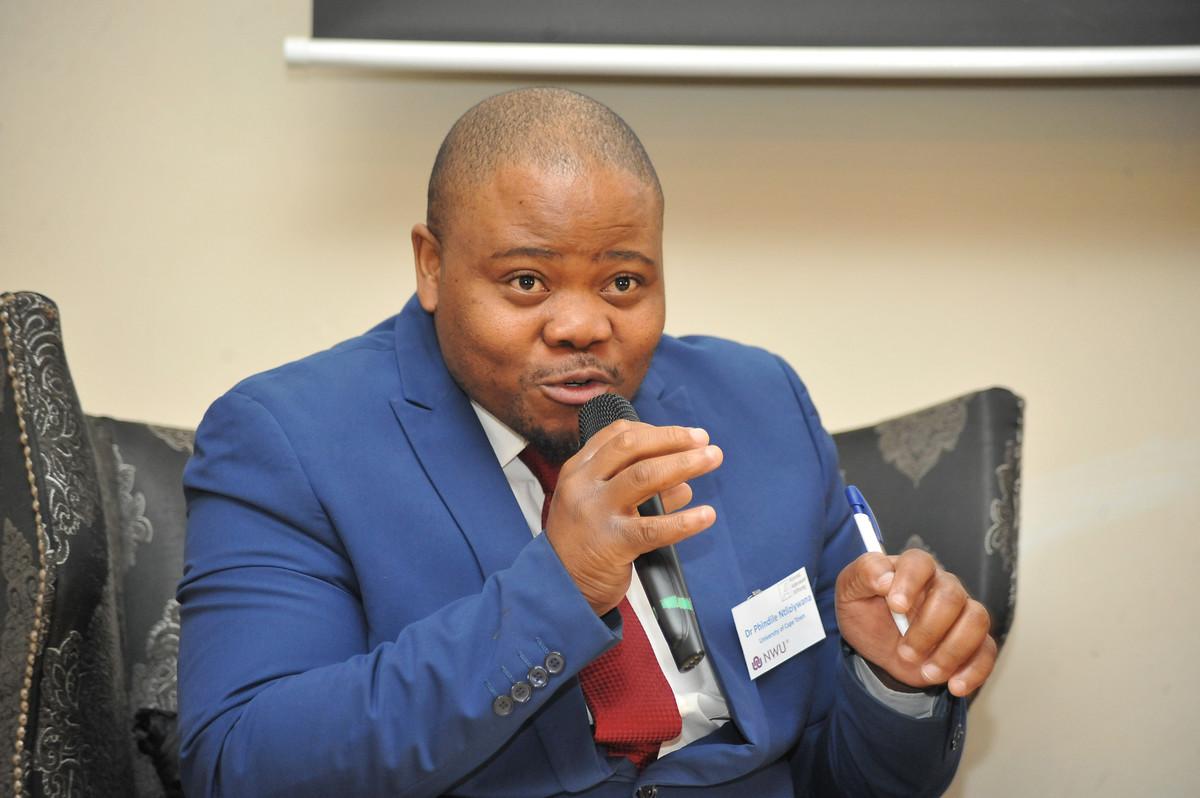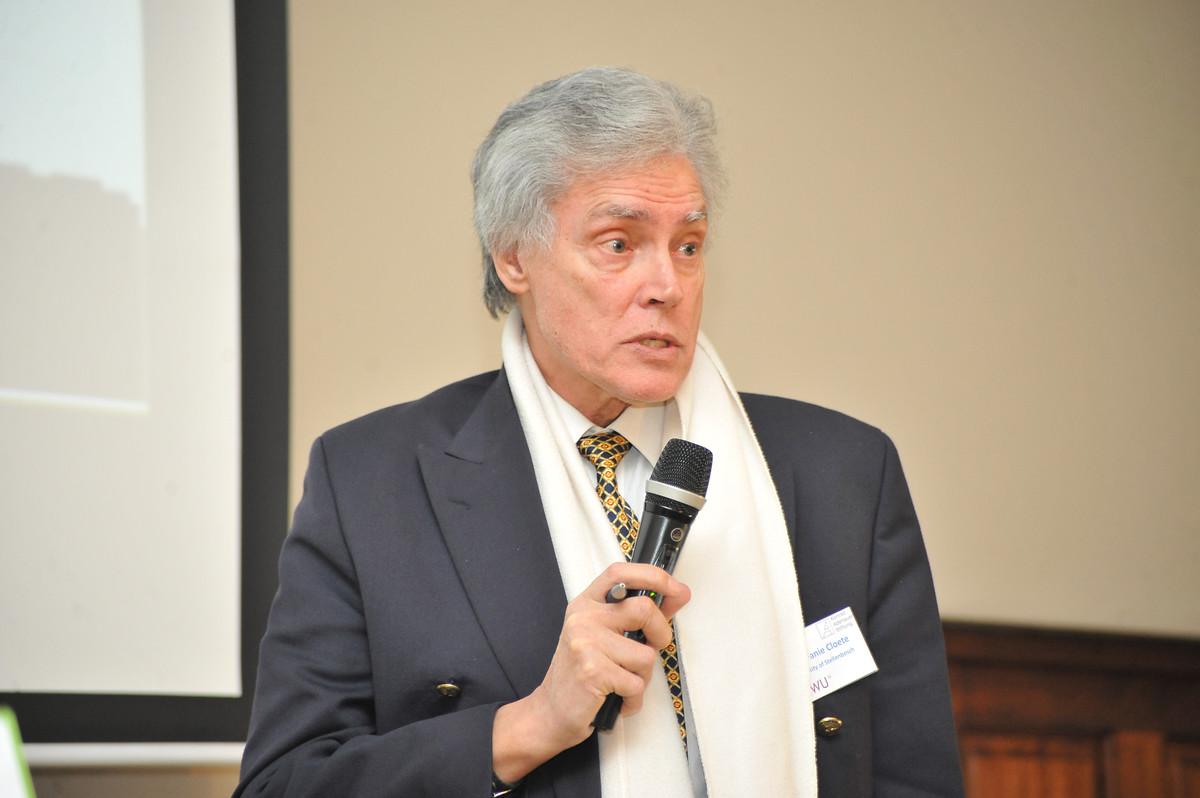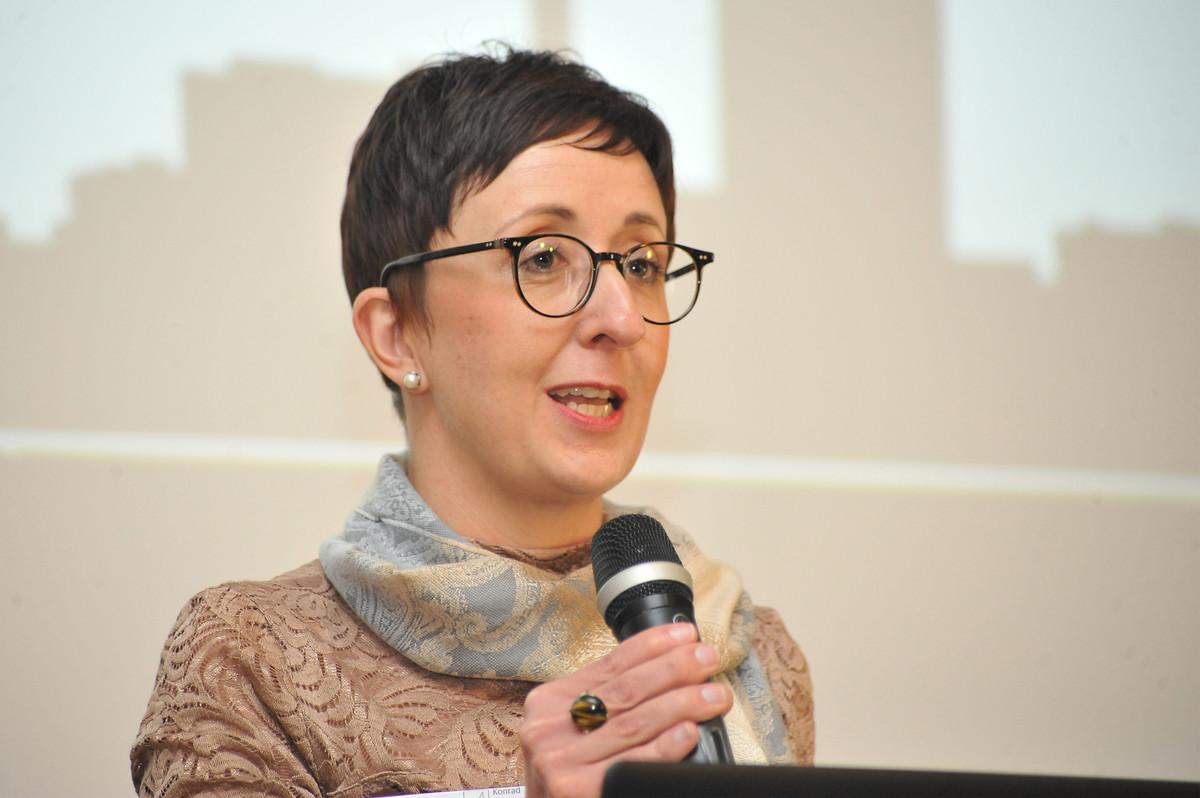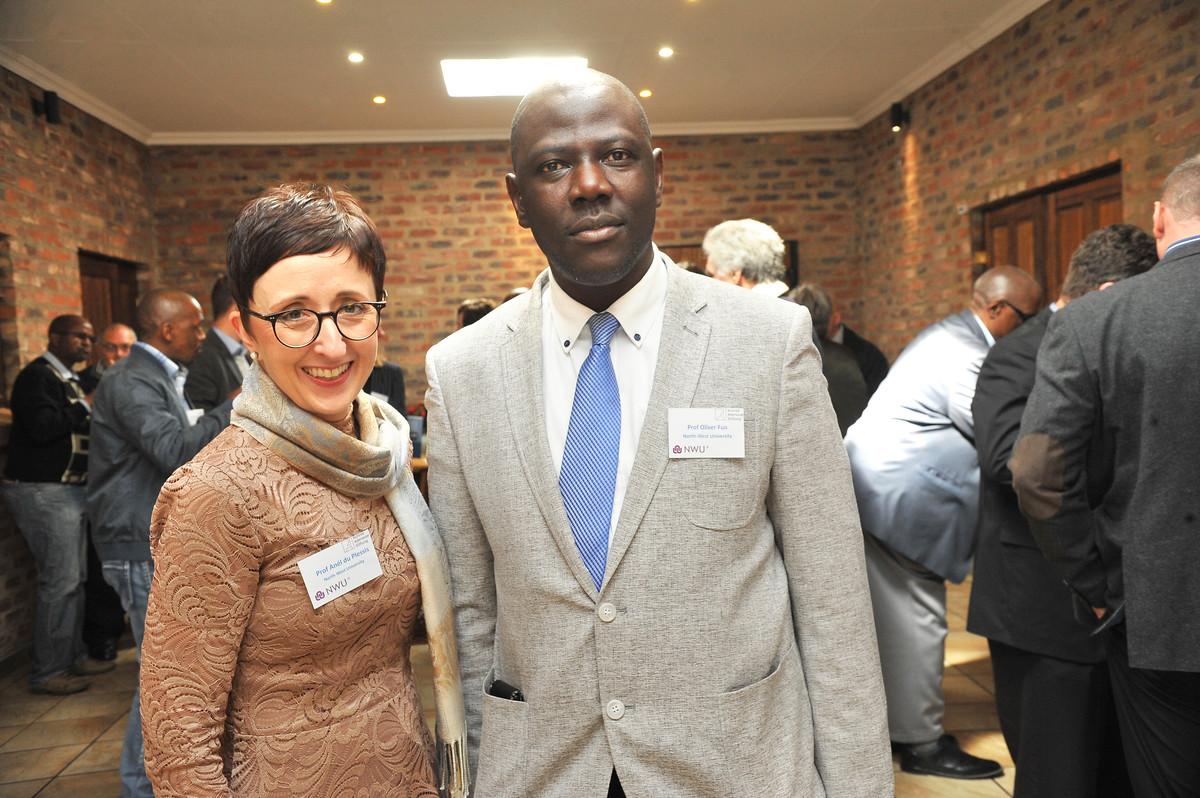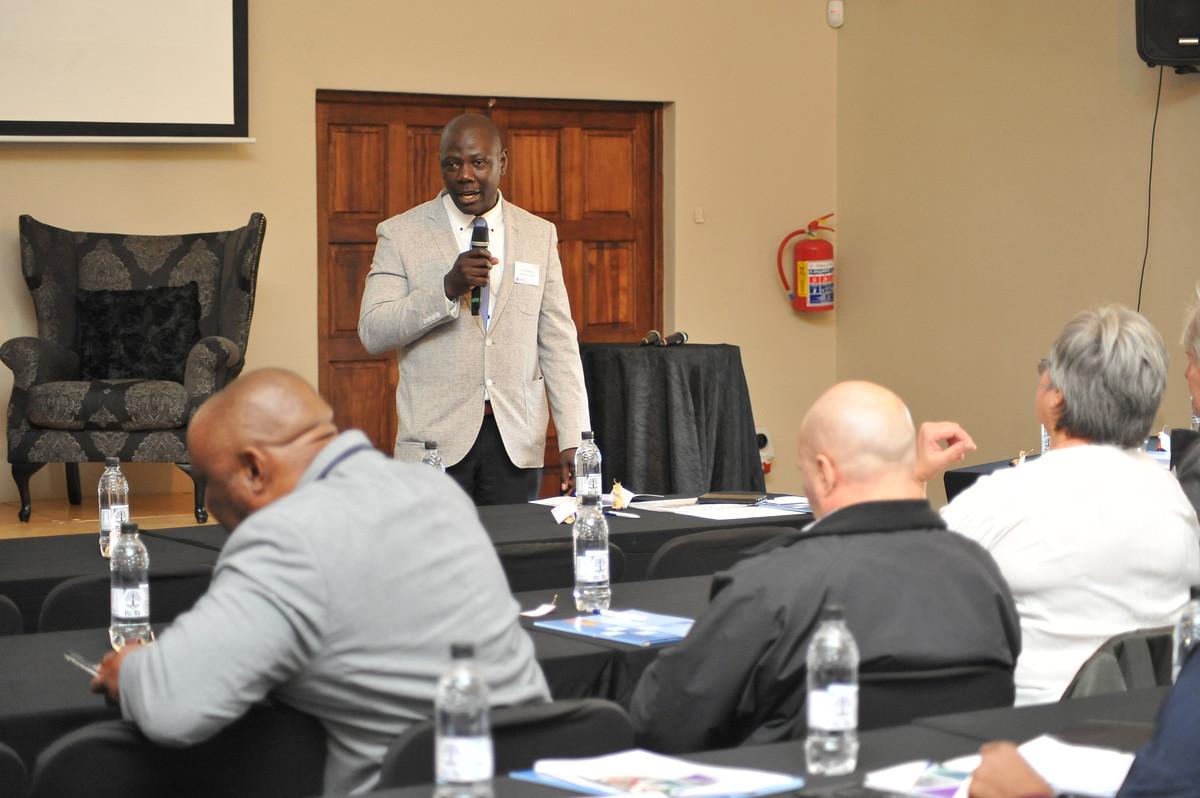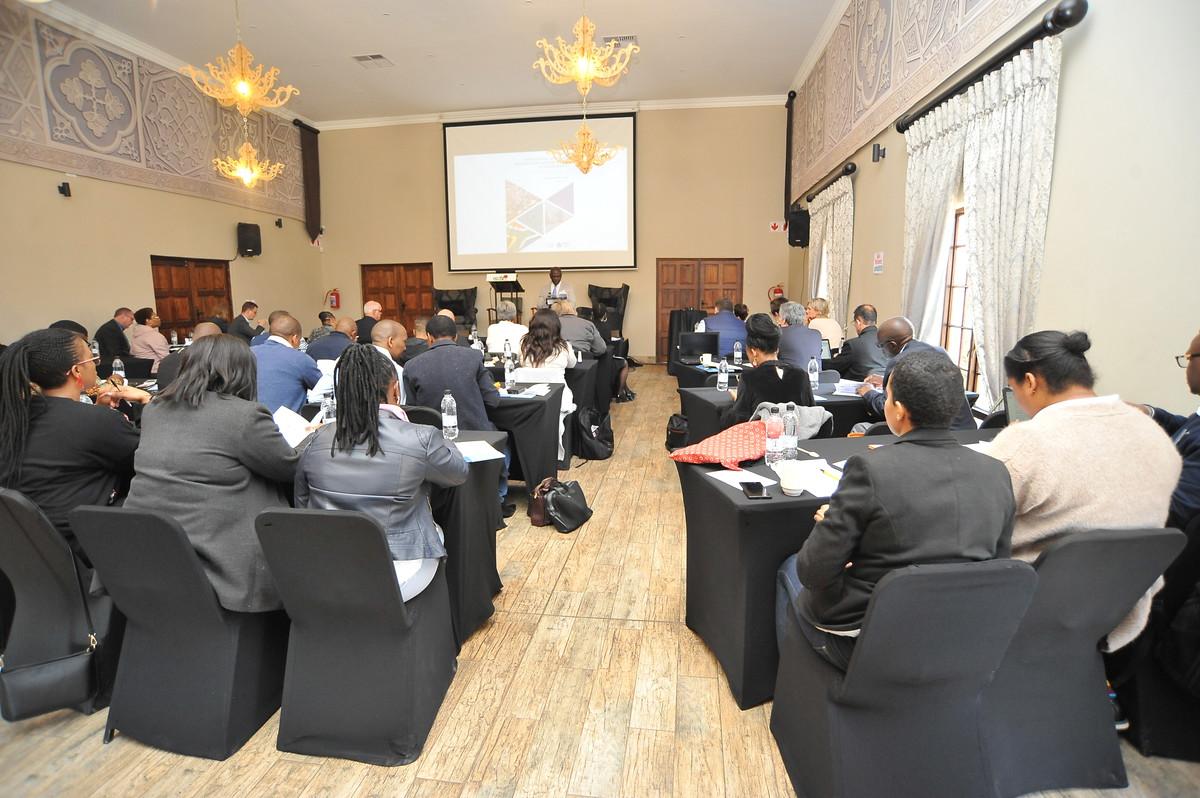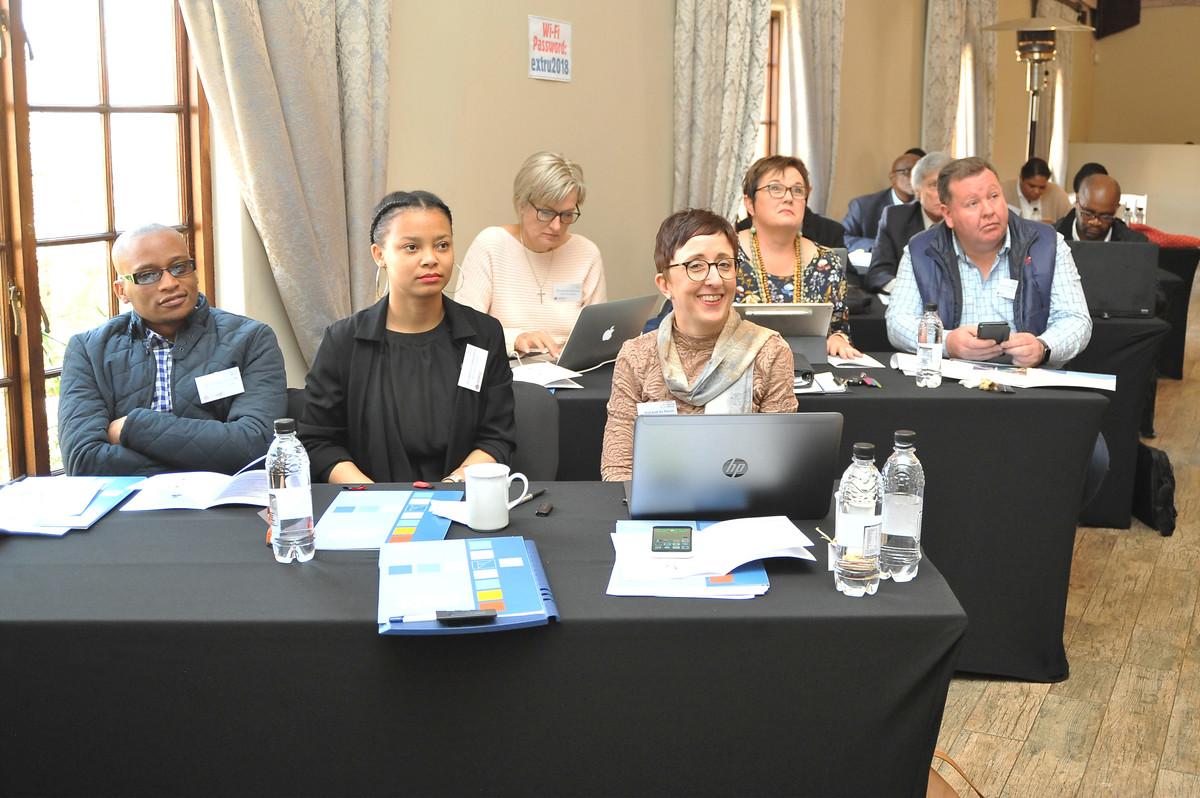Institutional Design of Medium-Sized Municipalities in South Africa - Foundation Office South Africa
The public event, which took place at the Roots Venue in Potchefstroom, was attended by over 50 participants consisting of experts on properly structured municipalities including legal practitioners, representatives from the private sector, and the academia, as well as civil society organizations and ordinary South African citizens. The overarching aim of the workshop was to identify critical challenges for the internal and administrative design of medium-sized local municipalities.
The event started with welcoming remarks given by Prof. Anél du Plessis (Faculty of Law, NWU: Project Coordinator), Prof. Stephen de La Harpe (Faculty of Law, NWU: Executive Dean) and Mr. Henning Suhr (Konrad-Adenauer-Stiftung: SA Representative). Prof. Anél du Plessis highlighted during her welcoming speech that internal structures of municipalities need to be discussed with regard to stakeholders’ responsibility for structure while the geographical location as well as the size of municipalities are essential.
Prof. Stephen de La Harpe stressed that in the light of academia, an interaction between praxis and theory is extremely important as value on the ground is added. He also thanked the Konrad Adenauer Foundation for facilitating this event. Mr. Henning Suhr began his welcoming remarks by acknowledging the long-standing partnership between the Konrad Adenauer Foundation and North-West University. After he introduced the work of the Konrad Adenauer Foundation, its worldwide engagement, projects and partners with the aim to promote sustainable democracy, good governance and the rule of law, he stressed the importance of local government participation and the need to strengthen the development of municipalities.
The conference was divided into three parts: First, different design options for medium-sized municipalities in South Africa were outlined, then features of properly structured municipalities were discussed and lastly, examples, experiences and reflections from within local government were shared. Each part consisted of three presentations by expert speakers from diverse professional backgrounds (academia, law and legislation and advocacy) who shed light on the topic from various perspectives.
The first session was moderated by Mr. Ngwako Raboshakga (Faculty of Law, NWU) and featured Dr. Phindile Ntliziywana (University of Cape Town), Prof. Fanie Cloete (University of Stellenbosch) and Prof. Anél du Plessis (North-West University). The overarching topic of the first session was different design options for municipalities in South Africa. A reoccurring theme was the structure of governance systems and how particularly municipality systems function. All three panelists pointed out that certain factors influence the institutional design of municipalities such as rural-urban elements, outsourcing, power and functions, as well as the nature and purpose of a municipality. A key theme was the need for cooperative governance on a national and provincial level but also within municipalities.
Afterwards, the audience was provided with the opportunity to ask questions, raise concerns, or elaborate on certain aspects of the presentations. Several participants raised concerns about the role of traditional leaders and stressed the need for the inclusion of traditional leaders within decision-making processes. In addition, the role of corruption, especially on a national level and, hence, obstacles that arise were debated.
After the first session, one of the participants, a local councillor, thanked Mr. Suhr (Konrad-Adenauer-Stiftung: SA Representative) and the Konrad Adenauer Foundation for their work and particularly the facilitation of the workshop. She shared her personal experience and stressed that she is able to apply the knowledge she acquires from the workshops within her profession as a councillor. She had participated in the workshops for years and enjoys the expert presentations on various topics as well as the interaction with other participants. To her, it is the perfect opportunity to discuss both praxis and theory from an academic perspective as there are no other workshops like this in her municipality.
The second session was moderated by Prof. Oliver Fuo (Faculty of Law, NWU) and featured Prof. Johan Nel (Centre for Environmental Management, North-West University), Prof. Marius Pieterse (University of the Witwatersrand) and Mr. Sam Makhubu (SALGA: Office of the Chief Executive Office). The presentations evolved around the following question: What are the features of a properly structured municipality? Prof. Marius Pieterse drew attention to the future of municipalities and what they are designed for by emphasizing the emergence of ‘mega-cities’, economic growth and rural-urban migration. He also pointed out that size, shape and functioning of urban cities are essential within governance structures. The other presentations focused on the Constitution’s definition of municipalities and, therein, the role of communities and people. Once again the inclusion of traditional leaders was discussed. Within this session, environmental challenges and municipalities’ potential coping-mechanisms were outlined.
After a brief lunch break, the last session of the day was moderated by Prof. Anél du Plessis (Faculty of Law, NWU) and featured Adv. Charlie Naidoo (Mangaung Metropolitan Municipality), Mr. Hans-Jurie Moolman (JB Marks Local Municipality) and Adv. Jaco Karsten (Emfuleni Local Municipality). Adv. Charlie Naidoo discussed how a successful municipality should be structured and function with regard to structure and people, especially councilors. She argues that even though we live in the age of the Fourth Industrial Revolution, human skills and values such as timeous decisions-making, efficiency and risk management cannot be replaced through digitalization. The other presentations focused on potential challenges and obstacles that municipalities will be affected by such as financial constraints. It was also argued that governance structures of municipalities should be reflective of sustainable development and infrastructure.
Lastly, Dr. Olivia Lefenya (NWU) concluded the key aspects that were discussed during the workshop. Accordingly, the first session focused on the principle of corporative government. The second session was primarily focused on the differences between governance and government, especially in terms of inter-municipality structures. Within the last session, features and successes of ideal municipalities were discussed.
Thereafter, Prof. Anél du Plessis (Faculty of Law, NWU) officially closed the workshop by expressing her gratitude to the Konrad Adenauer Foundation, the speakers and the participants whose active engagement during the panel discussions was highly welcomed and much appreciated.



